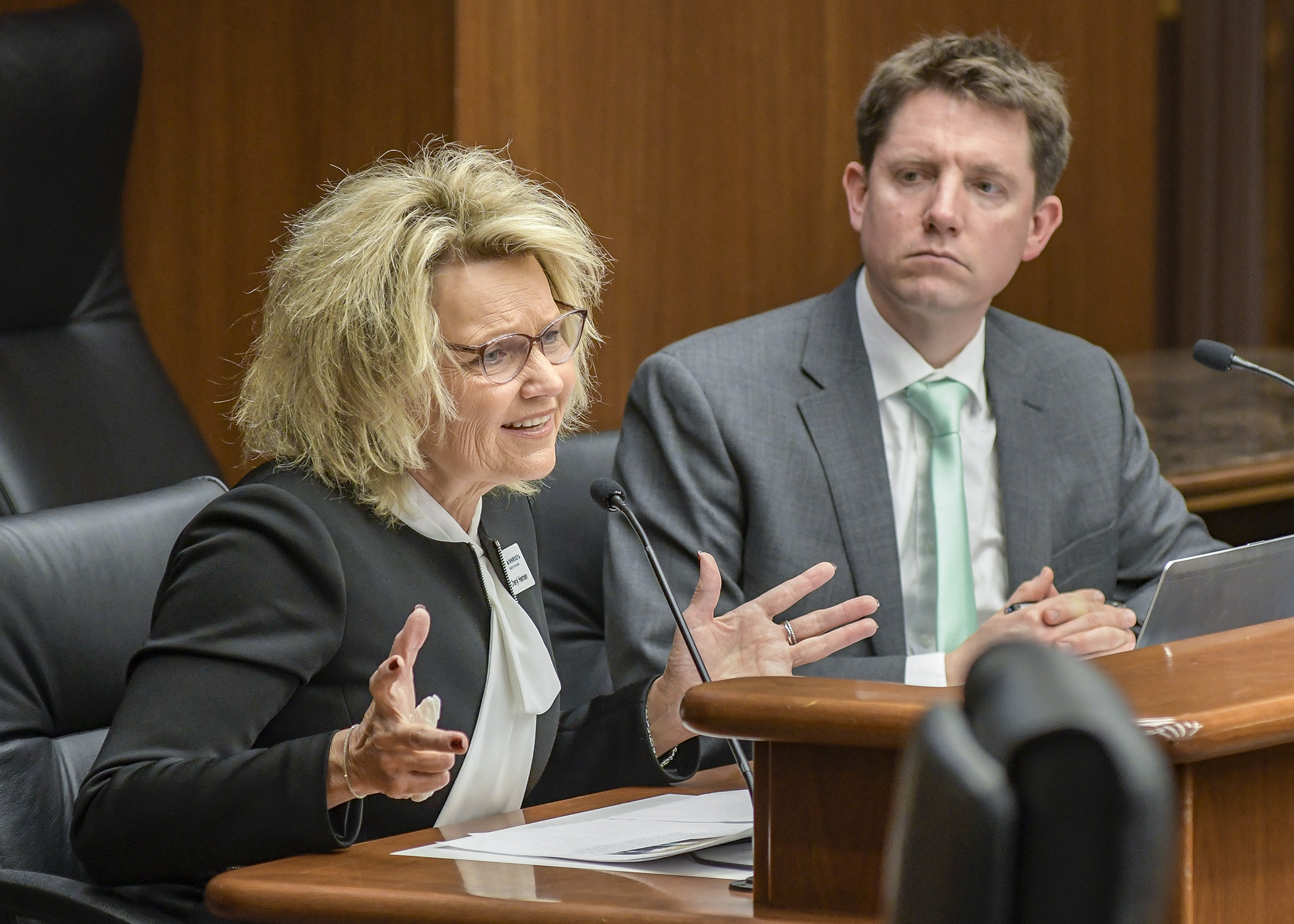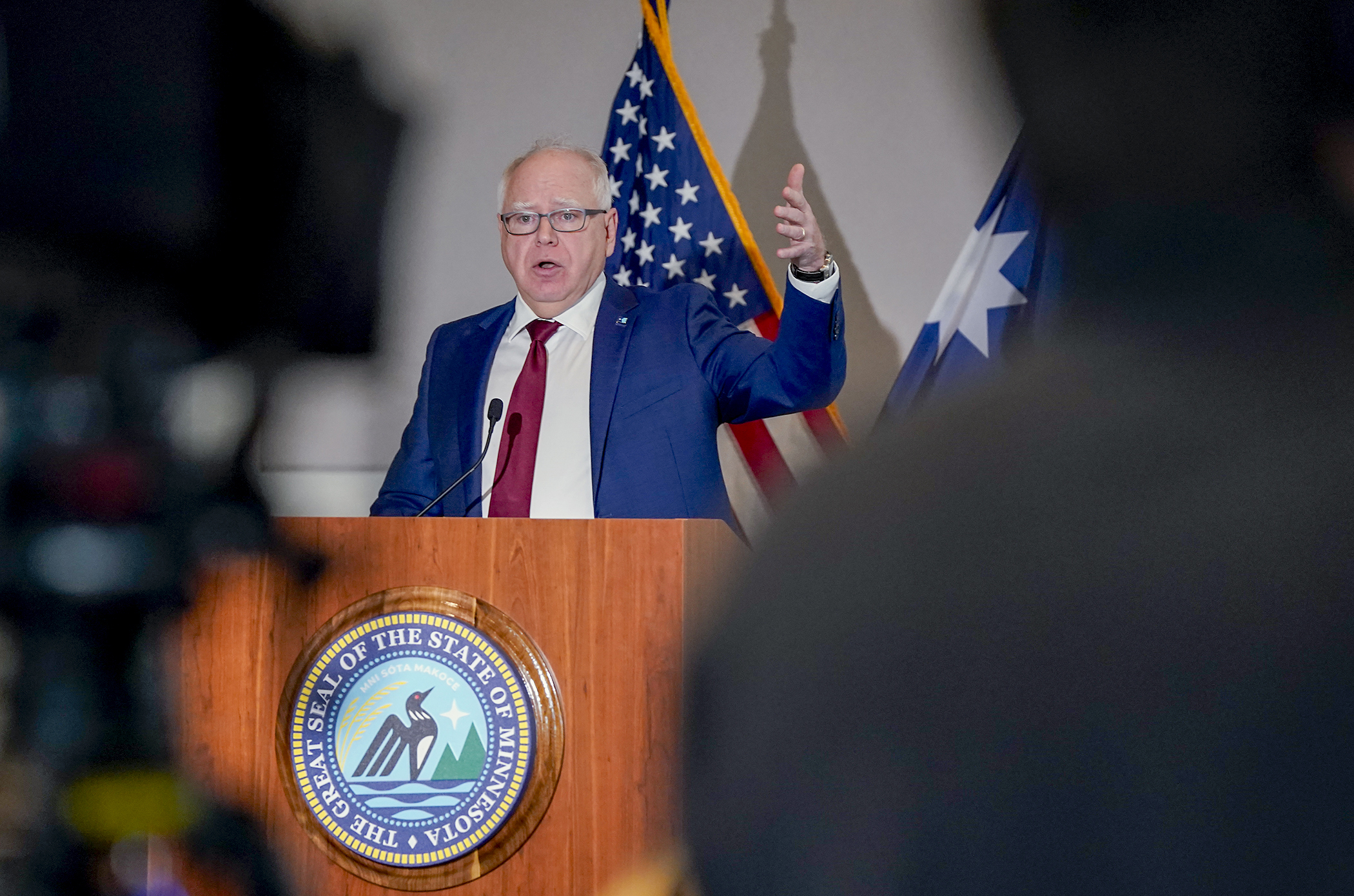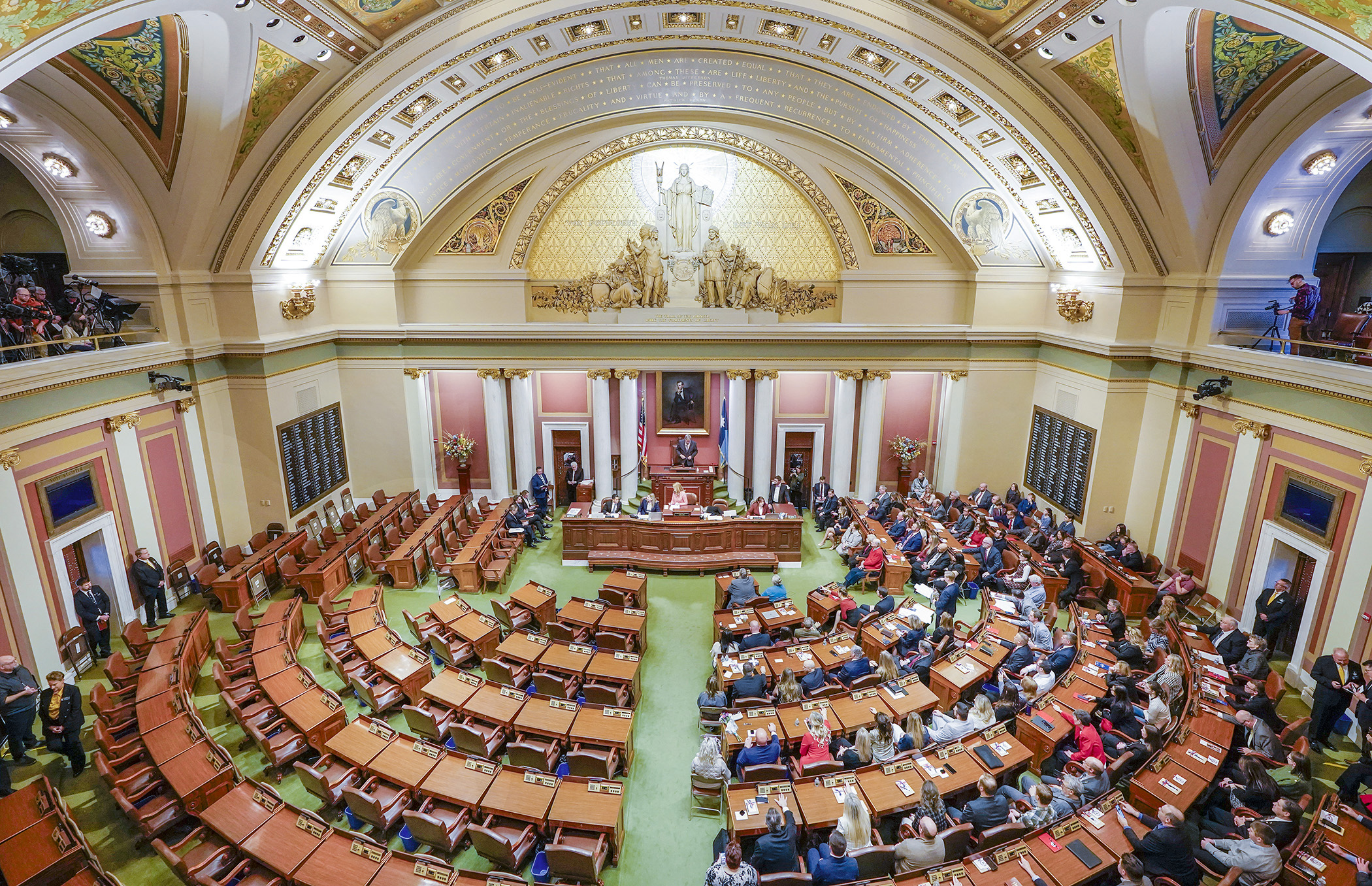Increased staffing in ombudsman office could help prevent elder abuse

The Office of Ombudsman for Long-Term Care advocates for people residing in long-term care facilities through a wide range of activities that include investigating complaints, mediating disagreements, training facility staff, and supporting family and resident councils.
But Minnesota’s office currently has one of the worst staffing ratios in the country, making it difficult for the ombudsmen to keep up with their caseloads, which are only expected to increase as the state’s population ages, Rep. Todd Lippert (DFL-Northfield) said.
He sponsors HF1565, which would appropriate the funding needed to bring the office up to the average staffing level of neighboring states through the addition of six central office personnel and 25 regional ombudsmen.
The House Long-Term Care Division approved, as orally amended, and sent it to the House Health and Human Services Finance Division Monday. A companion, SF931, is sponsored by Sen. Karin Housley (R-St. Marys Point) and awaits action by the Senate Family Care and Aging Committee.
An initial fiscal note estimates the expansion will cost $3.097 million per fiscal year, in the long term.
The new funding would take the state from one full-time staff member for every 9,000 beds to one for every 3,300 beds. While an improvement, the amount would still fall below the national average of one ombudsman per every 2,000 beds – a jump that would require an additional 65 staff, said State Ombudsman Cheryl Hennen.
With increased staffing levels, the office would be able to base 21 staff regional ombudsmen in Greater Minnesota and 18 in the metro area. The proposed distribution was determined by looking at license types, bed counts, high-need areas, and travel requirements, Hennen said.
While the ombudsmen’s visits are most often to nursing homes and assisted living facilities, their scope is broader than people might expect. Investigations can also include county social service agencies, veteran’s homes, and hospitals, she said.
The increased staffing would also allow for additional community offices and the recruitment of more volunteers, who work to increase the office’s presence in communities across the state and connect residents and families to the tools they need to advocate for themselves, Hennen said.
“This is a really great proposal and could go a really long way to getting [us] where we need to be,” while supporting other initiatives focused on elder protection, said Rep. Liz Olson (DFL-Duluth).
Elder Voice Family Advocates President Kris Sundberg expressed support of the bill, but also called for “clear enforcement tools” to help ombudsmen appeal unfair service terminations and protect vulnerable adults against retaliation.
Those issues, and others, are included in other pieces of proposed legislation introduced this session.
Related Articles
Search Session Daily
Advanced Search OptionsPriority Dailies
Walz proposes slimmed-down 2026-27 state budget, sales tax changes
By Tim Walker This is an odd-numbered year, and so the Legislature is constitutionally required to craft a budget to fund the state government for the next two fiscal years.
Gov. Tim Walz...
This is an odd-numbered year, and so the Legislature is constitutionally required to craft a budget to fund the state government for the next two fiscal years.
Gov. Tim Walz...
Simon says no quorum, Republicans elect Demuth speaker
By Rob Hubbard Depending upon how you view a situation, you could say that Tuesday’s Opening Day for the House of Representatives found the chamber either half full or half empty.
In ...
Depending upon how you view a situation, you could say that Tuesday’s Opening Day for the House of Representatives found the chamber either half full or half empty.
In ...